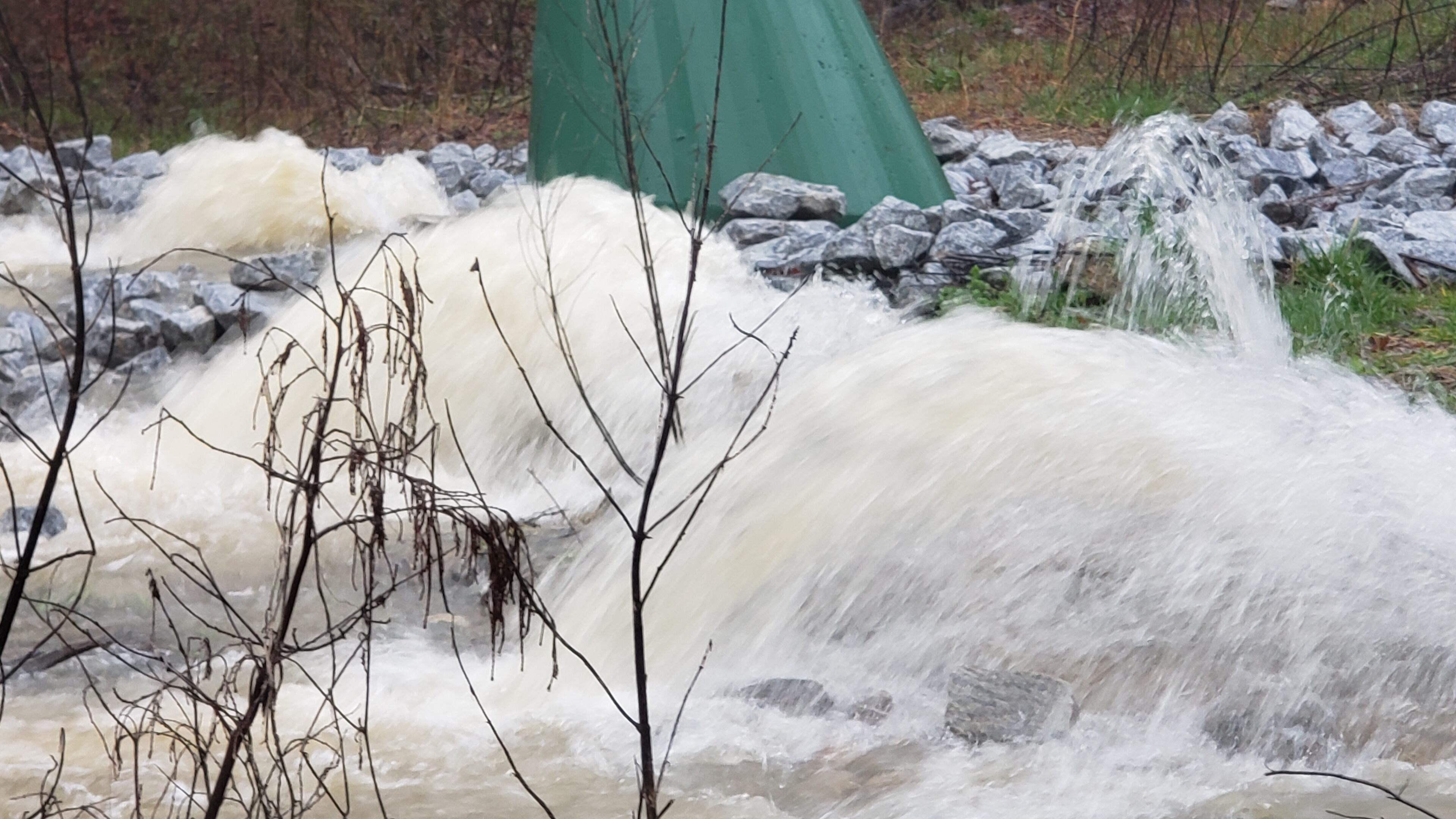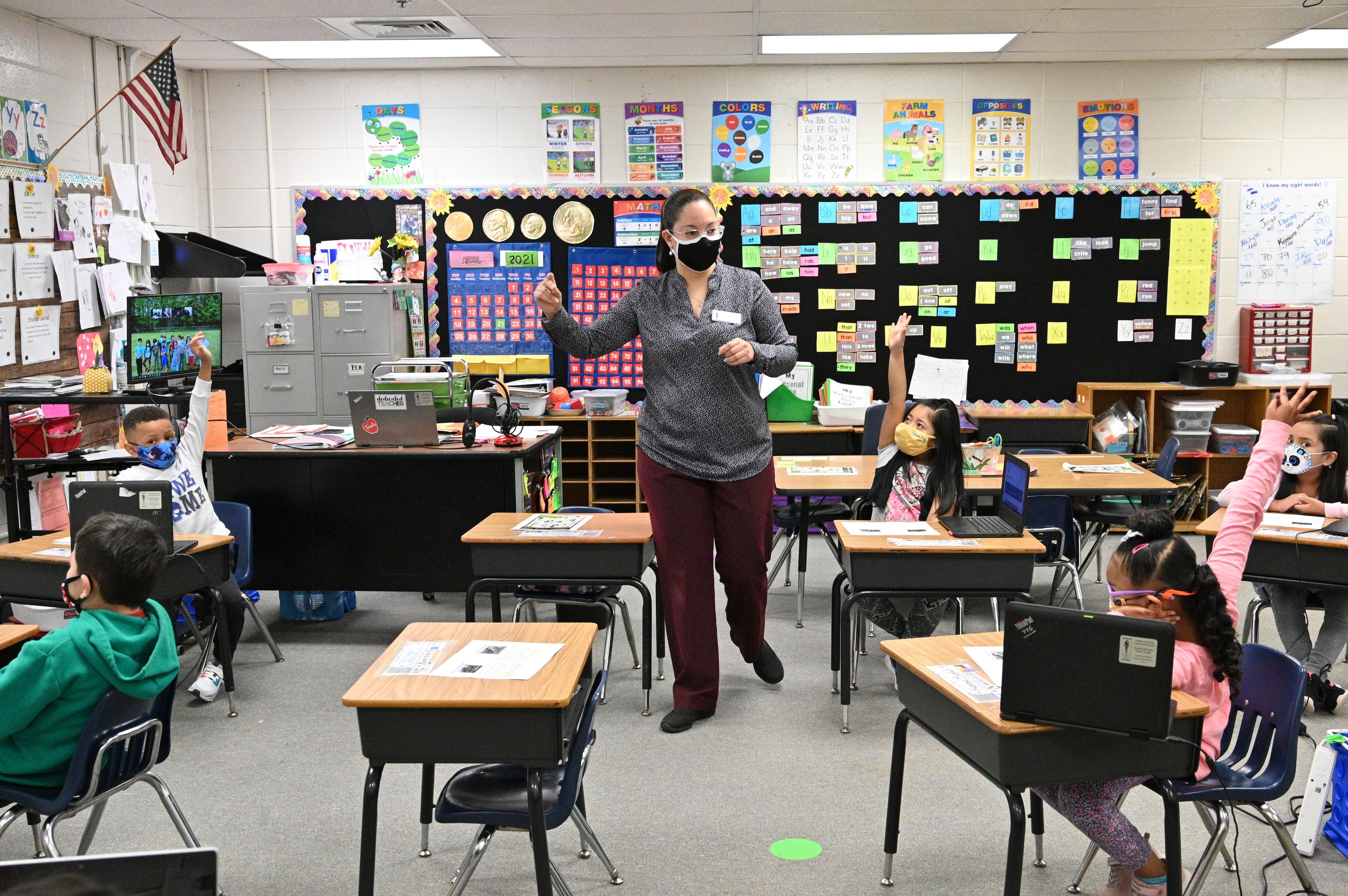TORPY: DeKalb sewer woes, a stinky saga that’s played through the decades

As 2024 counted down, outgoing DeKalb County CEO Michael Thurmond sent the feds a letter saying the county was going to fall short — again — in fixing its sewer system.
The county is on the hook with the federal government, having promised in a legal agreement to stop sewer overflows by 2027. Earlier, DeKalb vowed to correct the system by 2020, but only the most gullible believed that. So, in 2020, the county got an extension when it said it was really, really serious this time about performing all the hard, expensive work.
But on Dec. 31, with just hours left in his tenure, the term-limited Thurmond dropped the letter that spelled out all the progress his administration has done during his two terms in office, as well as the tens of millions of dollars spent. But, he added, DeKalb would not meet its 2027 deadline.
“The county simply needs more time and more money to fix the public part of the sanitary sewer system,” he wrote.
Talk about wringing in the New Year.
In response, U.S. Justice Department lawyer Patricia Hurst chided DeKalb’s “long history of institutional inertia.” She also suggested the county purposely misstated its intentions in 2021 as to what it would get done. “Contradiction of representations” was how she put it in her lawyerly way.
This should be no surprise. This effort has been snakebit since late 2010 when the Environmental Protection Agency mandated that DeKalb stop loading up the region’s streams with waste. The county agreed — at gunpoint — to spend $1.35 billion on repairs.

It turned out that infusing that kind of dough into DeKalb’s biosphere was a clarion call for scoundrels and the inept.
The first contract — for excavation, rock clearing and grubbing at the Snapfinger wastewater treatment plant — went to a small, politically connected minority firm that had trouble making a bond. We at The Atlanta Journal-Constitution did a little grubbing of our own and found out about it. Soon, the county had to stop the project, citing shoddy work that included a structurally unsound retaining wall meant to protect the sewer plant expansion.
It was symbolic that the foundation of the first part of the project was unsound. People went to jail after the subsequent investigations.
A couple CEOs later, Thurmond, an accomplished pol fresh off stabilizing DeKalb’s moribund school system, said his goals were to stop DeKalb’s image as “rotten to the core,” as one investigation put it, and to fix up the sewer and water system.
By 2020, it was obvious that DeKalb’s slow start and ginormous task of fixing an aging, decrepit system made that deadline moot, so a federal judge extended the consent decree. The county had secured $365 million in federal and state money (most of it loans), but that was barely enough to get the project going again.
“This is expensive; this is real money,” Thurmond told me back then. “If you don’t have infrastructure, you have nothing.”
At the time, everyone, including Thurmond, knew completing the task would cost lots more. Still, DeKalb has raised the rates just once since then, 6% in 2022.
This month, Thurmond’s successor, Lorraine Cochran-Johnson, and the newly installed commission are considering a rate hike of more than 150% over the next decade — 10% a year until 2034.

Thurmond’s letter states three reasons DeKalb won’t be able to meet the deadline. First, the scope of what needs to get fixed keeps growing as they work to fix the system. Second, inflation has been a bear. And the third is “environmental justice,” which I’ll get to in a minute.
I asked Thurmond why he held off on rate increases when he knew the work would be so expensive?
He said the county had a moratorium that kept 37,000 households from paying their water bills from 2016 to 2021. Thousands of homes were getting such outrageously high, and wrong, bills that his predecessor stopped billing them.
So, he asked, how could he justify a rate increase? “How can you ask everyone to pay their fair share when 37,000 are not paying?” he asked.
That stopped in 2021, I noted. Well, then there was COVID, he said, “and you couldn’t disconnect people’s water in a health crisis.”
Still, there was a rate hike in 2022 and then nothing.
Sometimes pinning down the erstwhile CEO is like trying to put your thumb on Jell-O.
As to Thurmond’s Dec. 31 letter, Commissioner Ted Terry told me: “We kept hearing, ‘We’re working on it. We’re working through it. There’s no cause for alarm.’”
“It feels like we were set up,” he said. The previous administration “has not given us their final presentation of what they were going to do.”

Thurmond bristled at the contention, “This is not a last-minute, out-of-the-blue last-minute letter.”
He said “environmental justice” means Black neighborhoods in South DeKalb, which have been suffering the spills, would get stuck with the solution, which are huge, smelly wastewater holding tanks.
“You’re victimizing the victim again,” he told me.
The most expeditious plan to hold wastewater, and one that engineers designed, he says, was to place a huge reservoir in Hidden Hills, a middle-class neighborhood that is organized and has some clout.
“I said: ‘No way,’” he said. “You’d destroy people’s property values.”
Thurmond wanted to store the wastewater at an expanded holding tank system at the Snapfinger water plant. But that probably wouldn’t get finished until the 2030s.
“One of the last things I did was to cut the ribbon at the Snapfinger plant,” he said, the one with the once faulty foundation.
And then he hit send on his letter.



